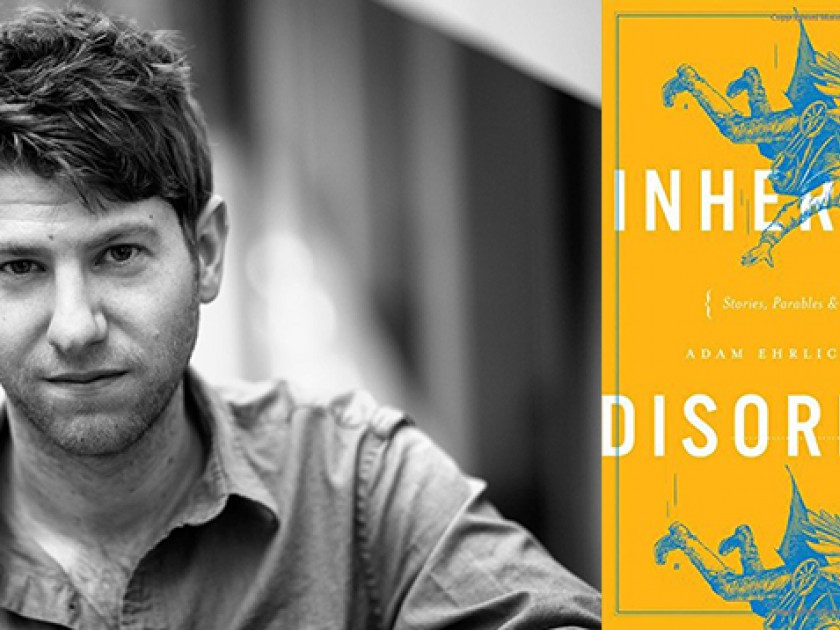
Jewish Book Council is proud to introduce readers to the five emerging fiction authors named as finalists for the 2017 Sami Rohr Prize for Jewish Literature. Today, we invite you to learn more about Adam Ehrlich Sachs and his book, Inherited Disorders, a hunded and seventeen vignettes addressing the complex relationship between fathers and sons.
A warm congratulations to Adam and the other four finalists: Paul Goldberg, Idra Novey, Rebecca Schiff, and Daniel Torday. Join Jewish Book Council on May 3, 2017 at The Jewish Museum for a discussion with the authors and announcement of the recipient of the $100,000 Sami Rohr Prize for Jewish Literature! Register for free tickets here »
What are some of the most challenging things about writing fiction?
Finding ways to ignore the fact that I’m making people up, dressing them up, and parading them about, like a crazy person or a young child; summoning every morning the necessary state of lucid self-delusion.
What or who has been your inspiration for writing fiction?
A small handful of historical neurotics, predominantly German or German-Jewish, who contrived their own private techniques for transforming their neuroses into comedy or philosophy.
Who is your intended audience?
Contemporary neurotics and the neurotics of the future. Nervous Jewish Bach enthusiasts. Obsessive-compulsive insomniac optometrists. Teenagers old enough to look a person in the eye when they shake his or her hand yet still for whatever reason incapable of doing so.
Are you working on anything new right now?
Yes, a novel.
What are you reading now?
Stanley Cavell’s The Claim of Reason. From one perspective, it’s an inquiry into the deepest problems of existence; from another, it’s the diary of a fretful bourgeois without a productive outlet for his energy. That combination, for me, is the sweet spot.
Top 5 favorite books
At the moment:
The Castle by Franz Kafka
Walking by Thomas Bernhard
Michael Kohlhaas by Heinrich von Kleist
Pale Fire by Vladimir Nabokov
Molloy by Samuel Beckett
When did you decide to be a writer? Where were you?
College, the end of senior year, in my dorm room, tearing out my hair over a thesis on hurricane dynamics, while my friends who had decided to give Hollywood a shot next year were getting outrageously drunk. I thought: I want to be that drunk.
What is the mountaintop for you — how do you define success?
Unfortunately I more or less subscribe to the Schopenhauerian view that our desires are endless, each success only creates new wants, et cetera. I think the most we can hope for is that at our death we have been more successful than our friends, in terms of books sold and awards won.
How do you write — what is your private modus operandi? What talismans, rituals, props do you use to assist you?
I drink two cups of coffee, move my cat from my desk chair (her favorite) to the bed, frantically flip through my favorite books looking for 8 – 10 good sentences to remind myself of the task, which somehow I’ve forgotten overnight, and then get started.
What do you want readers to get out of your book?
I would like for them to feel that something simple has been made needlessly complex, and to find this, for some reason, amusing.
Adam Ehrlich Sachs studied atmospheric science at Harvard, where he wrote for the Harvard Lampoon. His fiction has appeared in The New Yorker, n+1, and McSweeney’s, among other places. He lives with his wife in Pittsburgh.